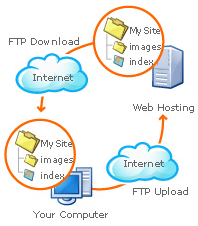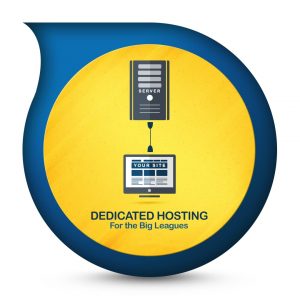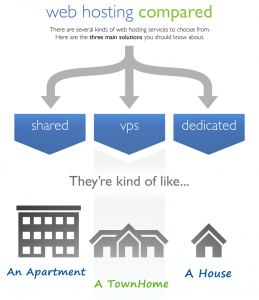
As discussed in a previous post, having a functional website involves some commonly overlooked things like having a registered domain name and an active web hosting subscription plan. Click here to recap what domain names are all about. In this post, we shall be discussing the ‘different types of web hosting services‘ available.
A web hosting service is a type of Internet hosting service that allows individuals and organizations to make their website accessible via the World Wide Web. Simply put, web hosting is the activity or business of providing storage space and access for websites on the internet. 
Putting it in much simpler terms, your home address is the domain name while the physical structure you live in (which is the building) is the server. The size and design of the house now depends on the type of web hosting plan purchased from the web hosting provider. This implies that if anyone from around the world wants to see you in your house, they would just visit your address (domain name) and enter into your house (server) where they meet you (The various website files).
Types Of Web Hosting
Let’s take a look at the most common types of web hosting plans and determine which one would best suit the needs of your business. There are several web hosting plans which vary in terms of facilities and their cost expenditure. There is a suitable web hosting plan available for you whether you are a developer looking for a hosting plan to test run your projects, or you probably might just be starting an online business or looking to take your online venture to the next level.
-
Shared Web Hosting:

This means exactly what the name implies. With a shared hosting account, your website is located on the same server as a numerous other websites. It’s the best option for beginners or for websites with little traffic. How many websites could be accommodated? Well, that really depends on your setup and hosting provider. However, it’s not uncommon for a site to share a server with hundreds and even thousands of websites.The biggest advantage of this web hosting plan is that it is the most affordable. It is great for people with limited funds and those just starting out.
Aside from that, with a shared hosting account you are usually completely taken care of in terms of setup. There is very little to configure so you can concentrate completely on building your website.
Sharing the server with many parties, however, is also the biggest drawback of this arrangement. A server is a computer with finite resources like hard drive space, CPU speed and RAM. This means that just like your laptop slows down when you run too many programs at once, so do these servers when they have too much requests to handle.
Since all websites on a shared host put demand on the server’s resources, you can run into problems if one of them is hogging all the processing power through increased traffic or faulty code. This leaves everyone else to compete for the remaining, leading to downtime (meaning your website is not reachable) or reduced loading speed.
It’s a phenomenon called the “bad neighbor effect” and one of the main reasons shared hosting is the most problematic of the different types of web hosting.
So is shared hosting ever a good option? Yes! It can be great for hosting websites that don’t get a lot of traffic (yet), static brochure sites, development and testing sites, personal sites or other websites where uptime is not a huge bother.
Shared hosting is also a great option if you are on a limited budget. It allows businesses to create a web presence even if they are not in the best position to do so. As such shared hosting is an extremely important tool for equality on the web.
-
VPS Hosting :

VPS stands for Virtual Private Server. It is among the most well-balanced among the different types of web hosting. A VPS server is still a shared environment, but the way it is set up is very dissimilar.
The CPU time and memory are still shared by everyone, but you also have a chunk of both of those allotted just to you.VPS is a lot more reliable and stable than shared hosting. First of all, it is usually limited to 10-20 websites per server. This reduces the demand on the server in itself.
However, the real upgrade is that all resources are divided evenly and no website allowed to exceed it’s limit. Once you reach the limit of what is assigned to you, your site may go down but the others will remain stable.
This is achieved through virtual machines that create a separation within the server. This simple addition removes most of the bad neighbor effect.
Another big benefit of VPS servers is that they provide more flexibility and allow you to customize your environment. On shared hosts this isn’t possible because it would change everyone else’s setup as well. Since your account is contained within a virtual machine you can make changes without affecting others.
Lastly, VPS is scalable according to your needs. Since you are running a virtual machine which takes some percentage of the resources available on the server, increasing what is available to you is no problem at all. This is a great comfort to business owners who expect their sites to grow and flourish.
There aren’t too many disadvantages for this type of hosting. The biggest thing is, of course, that it costs more than a shared hosting plan. So, if you are on a tight budget, you need to find a solution that works for you monetarily.
A second thing about VPS hosting is that with more configuration power also comes more responsibility. If you don’t know what you are doing, it’s possible to remove highly crucial files or software without knowing it. So, to really take advantage of it, you need to get educated before taking any action.
If you have the money, I recommend you upgrade to VPS as soon as possible. While it’s more expensive, even the lowest plans are usually a lot better than any shared hosting solution.
-
Dedicated Hosting.

Just as the name suggests, dedicated hosting simply means that you have a server all for yourself. It’s just like owning a whole apartment just for yourself. This provides a host of benefits but also comes with quite a few downsides.
First of all, one of the main advantages of dedicated hosting is that it removes all bad neighbor issues simply because there are none. No other website can steal or share from your resources, pose a security risk or cause other issues. This distinguishes it from the different types of web hosting we have discussed earlier. Also, you have the chance to customize the server in whatever way you see fit.
The downsides of using a dedicated server however evidently include higher costs than the shared web hosting and vps plans. However, if your business website truly needs a dedicated server for web hosting, this means that it should have risen to a level that can comfortably shoulder the costs of a dedicated server.In addition to that, you actually need to know quite a bit about computers and server technology. While there are managed dedicated hosting solutions you’ll still need to quite do a lot on your own.
On the extreme side of things, you could get a completely unmanaged service where you would need to install the OS yourself, let alone all the tools needed to run a web server, provide security scanning, malware removal and so on. Alternatively, you could just hire a server admininistrator. However, that brings additional costs with it.
Also, with a dedicated server you are putting all your eggs in one basket. If its hardware fails, your site is automatically down. In other plans, other modules can take over in case of failure or be replaced automatically. With dedicated servers, especially if you are monitoring them yourself, this could take quite longer.
-
Reseller Hosting.

Reseller Hosting is a variation of a shared, VPS or Dedicated Hosting plan where the customer has an administrator account to create new individual hosting accounts. It is literally reselling hosting to a third party. A reseller account has specific server management software so that the administrator can dedicate specific resources to each account and bill them individually.
In simpler terms, imagine a house that is leased to someone who sub-leases the rooms to individuals. That’s simply what reseller hosting is all about. The individuals could buy their own condo or rent their own house. But if they simply don’t want to deal with leasing agreements or property management – and would rather deal with their friend, then it makes more sense to sub-lease.
That analogy makes Reseller Hosting seem informal and unprofessional. It’s not. It’s actually a very common service for freelancers & agencies who have clients who don’t want to even *hear* the words FTP or DNS. Clients get hands-off hosting. Resellers get recurring revenue and a long-term relationship. Hosting companies lease servers to someone who can pay, knows what they need, and will usually be around for a while.
Reseller Hosting can be part of a shared, VPS or dedicated server. It all depends on what the customer is using it for. Unlike other hosting plans, reseller hosting accounts are built to resell part of your server’s resources in a dedicated account. You can have a reseller shared plan where you are reselling accounts on a shared server. You can have a reseller vps plan where you are reselling accounts on a dedicated allocation of a single server. And so on . The key is to know what kind of resources your business and your clients’ businesses need.

Leave a Reply